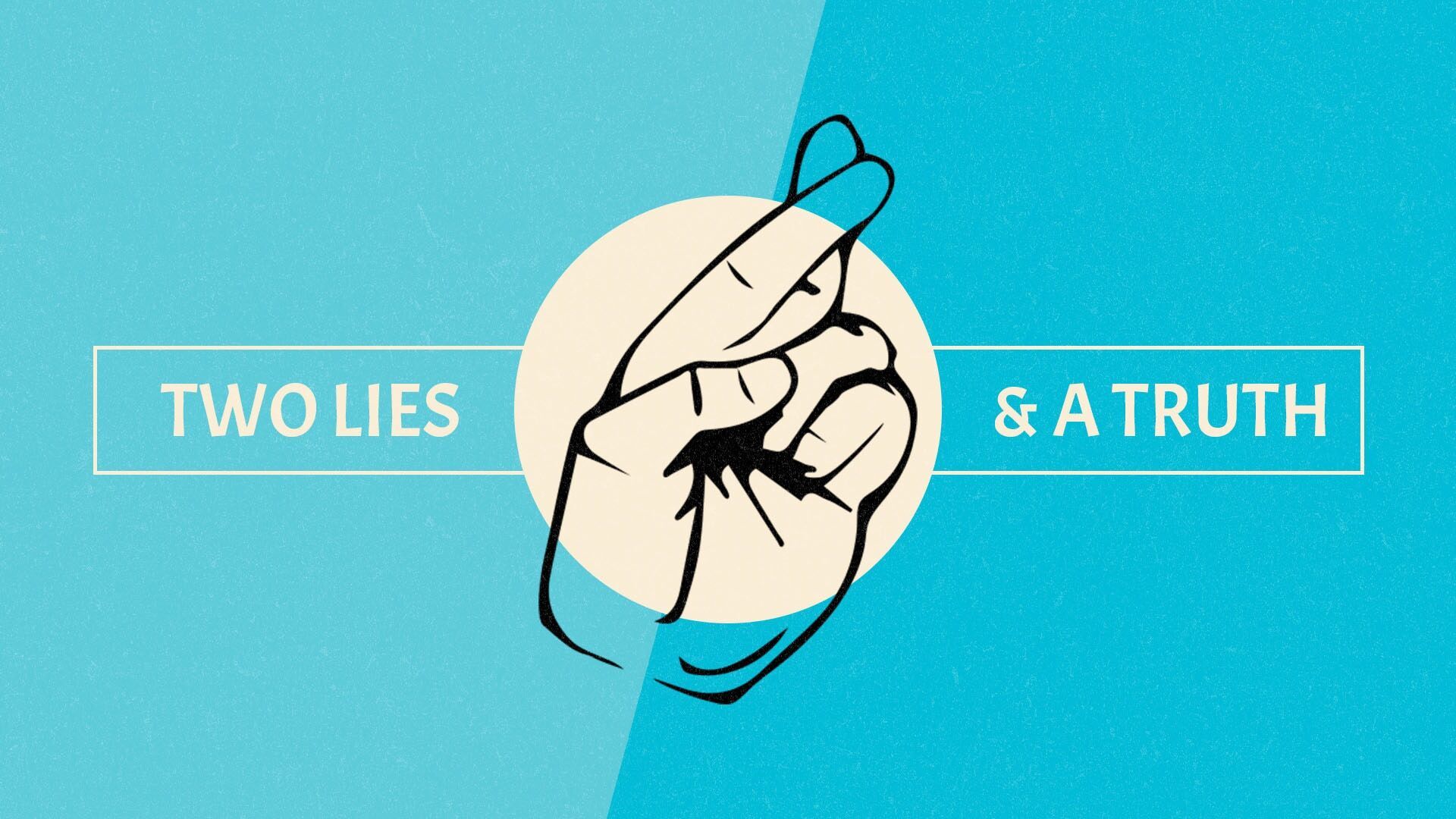God-Walkers (Worship)

If you have a Bible here, please open it to Genesis 5, which should be in the first few pages of your Bible. We’re going to be flipping all over today, but let’s start here.
Last week we started looking at our life’s purpose. We’ve been asking why we’re here, and why we exist. Have you ever gone out to the store to get something and forgotten what you’re there for? I’ve gone to Costco for milk and returned home with everything but the milk. It’s possible to get to the end of our lives and have accomplished everything but the purpose for which God has put us here. I can’t think of many things that are more important than understanding our purpose.
Here’s where it gets confusing for most of us. It’s easy to think that our purpose is about us, but it’s not. God created so much for our enjoyment. Today, you can go out for lunch and experience tastes that you’ve never experienced before. You could drive to places that are so beautiful that it would take your breath away. There is so much that’s good in this life that we can experience that it’s natural to start to think that it’s all for us, and that our happiness and enjoyment is the purpose of our lives. But that’s not our purpose at all. It’s a byproduct, but it’s not the goal.
Our purpose isn’t about us. It’s about God. Revelation 4:11 says, “You are worthy, O Lord our God, to receive glory and honor and power. For you created everything, and it is for your pleasure that they exist and were created.” You were created to give God pleasure. You can measure everything up in your life against this purpose. It’s why we’re here – not for our pleasure, but for God’s.
Rick Warren calls giving God pleasure worship. The problem with worship is that we usually think of worship as an activity that happens in a worship service. That’s one type of worship, but worship is far more than that. Worship is a 7/24/365 thing. It’s about all of our lives.
Wouldn’t you agree it’s easy to worship God in church? Relatively easy. I know stuff gets in the way, but it’s a lot easier here than in other circumstances. I did some laundry yesterday. I put one of these 10 liter jugs on top of the washer. Sometime, I forget when, I heard this big thump noise, but I couldn’t find what it was. I discovered what it was this morning while I was getting ready for church. It was the giant container of liquid laundry soap, which was now all over the floor. Do you ever have one of those mornings? Do you ever have one of those lives? I didn’t want to get up. Two or three other things went wrong. I’m standing barefoot in laundry soap, and I’m late for church.
The question isn’t how to worship God when I’m in church. How do I worship God when I’m standing in laundry soap and late for church? How do you worship God when you’re knee-deep or worse? How do you worship God when you work for a miserable boss? When your kids are driving you crazy? How do you worship God with all of your life?
Here’s where Genesis 5 comes in. It’s one of those passages that we usually skim over. Does anyone else here sometimes quickly skim the genealogies in the Bible? It’s tempting to do so, but this one contains something out of the ordinary. You’re reading along, and you notice a pattern. Someone lived, had a child, lived some more and died. It’s the same all over again. Someone else lived, had a child, lived some more, and then died. Then, all of a sudden, the pattern breaks down in verses 21 to 24:
When Enoch had lived 65 years, he became the father of Methuselah. And after he became the father of Methuselah, Enoch walked with God 300 years and had other sons and daughters. Altogether, Enoch lived 365 years. Enoch walked with God; then he was no more, because God took him away. (NIV)
Everyone lived. Enoch lived, but he lived differently: he walked with God. This is meant to stick out to us. “So and so lived, and then he died. Then someone else came and lived, and then he died. But Enoch walked with God, and then he never died. God just took him away.”
I don’t know how this happened. Enoch was just one of two people in the Bible who never died. I don’t know how this happened. Maybe he just disappeared overnight and nobody ever knew what happened to him. Maybe it happened so that everyone knew what had taken place. His life was different, and then God took him away.
It’s as if the author is telling us that we have a choice in life. We can either live, or we can walk with God. Those are our two choices.
What does this “walking with God” term mean? I don’t think it means that Enoch was especially pious. There are lots of pious people in the Bible, and one almost gets the impression that God didn’t like a lot of them. God seems to be drawn to people you wouldn’t call pious. Colorful, action-oriented, rough around the edges, yes. But you probably wouldn’t call most of them pious.
The term “walking with God” isn’t about piety. It’s about relationship. It’s more the idea of a friendship – of an intimate, supernatural friendship with God. It’s the highest accolade you could pay to a person, that they walked with God.
Just a few verses later, you see the same term used of Noah. Genesis 6:9 says, “Noah was a righteous man, blameless among the people of his time, and he walked with God.” Noah, too, walked with God, and he was used to saving the entire world. You get the picture: people who walk with God are delivered.
You don’t see the same phrase used again for a long time. It’s used of Levi, representing the priestly tribe the Levites, in Malachi 2:6: “True instruction was in his mouth and nothing false was found on his lips. He walked with me in peace and uprightness, and turned many from sin” (NIV).
Then, in Hebrews, we find Enoch’s name once again. We know next to nothing about Enoch, except what we read in Genesis. Yet when the author of Hebrews is looking for examples of how to live a life of faith, one of the first people he picks is Enoch:
It was by faith that Enoch was taken up to heaven without dying-“suddenly he disappeared because God took him.” But before he was taken up, he was approved as pleasing to God. So, you see, it is impossible to please God without faith. Anyone who wants to come to him must believe that there is a God and that he rewards those who sincerely seek him. (Hebrews 11:5-6)
So there you have it. Here’s how to live a life that pleases God. It’s not about piety. It’s not about a lot of other things. It’s about our relationship with God. It’s about having an intimate friendship with him. It’s not about what we do on Sundays. It’s about the friendship what we maintain over the course of our entire lives.
We get so focused on techniques. This past week, I went to the local bookstore to the relationships section. I was going to buy some of the books to illustrate today, but I wasn’t sure I should. What if somebody saw me buy a book on finding a husband when you’re 35 or older? There were all kinds of books on the techniques of relationship building.
Are techniques important to relationships? It depends on how socially inept you are. I suppose some techniques are helpful. It’s important to learn how to have a conversation, how to let the other person speak, and how to wear deodorant. But once you’ve got the basics down, relationships aren’t at all about techniques. Relationships are about the heart.
If I went home and talked to my wife from a cue card or from some prompts written on my hand, I can tell you that things wouldn’t go very well. It’s far better to connect at the level of the heart. Relationships ultimately aren’t about techniques.
It’s almost as if God was saying, “If you want to worship me – worship me with your entire life, not just in the worship service, you’ve got to stop focusing on techniques. Instead, you’ve got to walk with me.” We get so focused on techniques of worship, of relating to God, that we forget that the techniques aren’t the issue.
God himself gets sick of the techniques. He says in Isaiah 1:
I am sick of your sacrifices,” says the LORD. “Don’t bring me any more burnt offerings! I don’t want the fat from your rams or other animals. I don’t want to see the blood from your offerings of bulls and rams and goats. Why do you keep parading through my courts with your worthless sacrifices? The incense you bring me is a stench in my nostrils! Your celebrations of the new moon and the Sabbath day, and your special days for fasting-even your most pious meetings-are all sinful and false. I want nothing more to do with them. I hate all your festivals and sacrifices. I cannot stand the sight of them! From now on, when you lift up your hands in prayer, I will refuse to look. Even though you offer many prayers, I will not listen. For your hands are covered with the blood of your innocent victims. Wash yourselves and be clean! Let me no longer see your evil deeds. Give up your wicked ways. Learn to do good. Seek justice. Help the oppressed. Defend the orphan. Fight for the rights of widows. (Isaiah 1:11-17)
The only people that Jesus really couldn’t stand were actually the masters of religious technique. They never missed the worship services. They were always praying and reading the Scriptures. They mastered all the techniques, but Jesus couldn’t stand them. They didn’t love God and they certainly didn’t love Jesus.
The techniques aren’t all bad. You can pick up the techniques again if they will help in developing a relationship, but the techniques are never the point. They’re good if they help. They should be discarded if they get in the way.
This is what worship has always been about. It’s not a new thing. The most well-known passage of the Scriptures in the first five books of the Bible – five books that are pretty technique-heavy – is one that talks about this very thing. It is the passage that everyone would have learned and been able to recite off by heart. It’s called the Shema, and it’s found in Deuteronomy 6:4-9:
“Hear, O Israel! The LORD is our God, the LORD alone. And you must love the LORD your God with all your heart, all your soul, and all your strength. And you must commit yourselves wholeheartedly to these commands I am giving you today. Repeat them again and again to your children. Talk about them when you are at home and when you are away on a journey, when you are lying down and when you are getting up again. Tie them to your hands as a reminder, and wear them on your forehead. Write them on the doorposts of your house and on your gates.
Did you catch that? It’s about loving God, with all of us. When it talks about heart, soul, and strength, it’s not dividing us up as if it’s possible to love God with one or two of the three. It’s saying, “Love God with your entire being.” Even the commands are to be written on the heart. It’s about a relationship. It’s about loving God with our being, of walking with him.
When Jesus was asked the most important commandment, he referred back to this one. It’s the heart of what it means to pursue God. Jesus said, “‘Love the Lord your God with all your heart and with all your soul and with all your mind.’ This is the first and greatest commandment” (Matthew 22:37).
How does this work in everyday life? Let me give you two examples. One of the things I love about the early church is that they were as messed up as we are. It gives me hope. One of the issues they faced was what to do with meat that was offered to idols. It’s hard to relate this, so let’s try to picture what it would be like.
Say that on your way out of church today, you were starving, and someone was selling rotisserie chicken right outside for half the price that you would normally pay. You’re about to walk by, but it smells so good, so you stop and ask, “Why is your chicken so cheap?” It turns out that it’s cheap because it’s used chicken. But not used in the normal sense. It’s being sold by this religious group that offered it to their god that morning, but evidently their god wasn’t hungry and there’s all this leftover chicken.
Some of you would have no problem saying, “What a bargain! I don’t really care what god it was offered to. The other gods aren’t real, and besides, I’m hungry.” Others of you would really struggle with the morality of buying that chicken. What should we do?
Paul says a lot on the issue, but one of his bottom-line principles was this one: “Whatever you eat or drink or whatever you do, you must do all for the glory of God” (1 Corinthians 10:31). You can use this as a guiding principle in every decision of life. Will watching this TV show bring glory to God? Some of them will, because God is glorified when we look after ourselves and unwind. There are some shows that are impossible to watch while bringing glory to God. Some help the relationship. Others get in the way.
Every decision that we face, even ordinary decisions like what to eat, drink, and wear, can be guided by this principle. All life, 7/24, is about bringing glory to God. It’s about walking with him as my friend. It’s about loving him with all of my life.
Paul put it this way, in Romans 12:1 (Message paraphrase): “Take your everyday, ordinary life-your sleeping, eating, going-to-work, and walking-around life-and place it before God as an offering.” It’s about all of our lives. Rick Warren put it this way: “That is what real worship is about – falling in love with Jesus.”
I wish I could give you techniques that would help do this. Ultimately, it’s not about feelings or about willing ourselves into this kind of love. About the best thing I can recommend is that we come to God and say, “I want to love you with this kind of love. Help me to do so.” God has promised us his Spirit, and the Spirit can make God-lovers out of us. If we ask God to do this, I believe he will.
At the end of our lives, it can be said that you lived. Or, it can be said that you walked with God. Not that you were perfect. Not that you were pious. But that you were friends with God, and you walked with him. Those who walk with God are delivered. Unlike Enoch, they may die in this life. But Jesus says that God-walkers will have eternal life.





